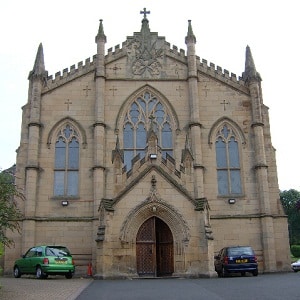 Religious Leaders To Develop an Action Plan to Decriminalize Drugs, Reduce Mass Incarceration, and Eliminate Racial Disparities in Drug Arrests
Religious Leaders To Develop an Action Plan to Decriminalize Drugs, Reduce Mass Incarceration, and Eliminate Racial Disparities in Drug Arrests
Nashville – This June 13-14, two dozen religious leaders will gather at the historic American Baptist College to examine the disproportionate impact of the war on drugs on poor and black communities. The U.S incarcerates more people than any other country in the world – both per capita and in the total number of people behind bars. With less than 5% of the world’s population, the U.S. has almost 25% of the world’s incarcerated population. This alarming rate of incarceration has had a deleterious effect on poor and black communities. While African American comprise only 13 percent of the US population and 13 of drug users, they make up 38 percent of those arrested for drug law violations and 59 percent of those convicted of drug law violation. This unchecked and immoral assault on vulnerable and marginalized communities is cause for serious critique from within the religious community.
Civil rights and religious leaders attending this meeting include Dr. Iva Carruthers (General Secretary of the Samuel DeWitt Proctor Conference) Dr. Forrest Harris (President, American Baptist College), San Francisco civil rights icon Dr. Amos Brown, and DPA Board Member Reverend Edwin C. Sanders, II (Senior Servant, Metropolitan Interdenominational Church, Nashville).
This call to action is a historic step in developing a moral, just and compassionate policies that reduce the role of criminalization in drug policy. The call is urgent – approximately 2.7 million children are growing up in American homes where one or more parents are incarcerated. One in nine black children has a parent behind bars. Two-thirds of these parents are incarcerated for nonviolent offenses, primarily drug law violations.
The urgency of the issue cannot be ignored – today, more than 1 in 100 American adults is behind bars. In 1980, the total U.S prison and jails population was about 500,000 – today, it is more than 2.2 million.
A conviction for a drug law violation can result in the loss of employment, property, public housing, food stamp eligibility, financial aid for college, and the right to vote – even after serving time behind bars. The collective social and economic cost of criminalizing millions of mostly poor and black and brown Americans is sapping the lifeblood out of already socially neglected and economically neglected communities.
As communities dig deeper into the hole of despair, the church is being asked to serve as a sanctuary for those who are considered the “least of these among us.” It’s time for a new vision and direction. Many other countries are looking at alternatives to the criminalization of people who use drugs – they are showing their commitment to love and compassion rather than fear and punishment by allocating resources aimed at strengthening the health and socio-economic safety net in their respective countries.
So, in the name of justice, love and compassion, religious leaders will develop and action plan that calls on policymakers to:
- Repeal laws that criminalize drug possession and replace them with policies that expand access to effective health approaches to drug use, including evidence-based drug treatment.
- Eliminate policies that result in racially disproportionate arrest and incarceration rates.
- End policies that unjustly exclude people with a record of arrest or conviction from key rights and opportunities.
Statement from Drug Policy Alliance Board Member Reverend Edwin C. Sanders, II, Senior Servant, Metropolitan Interdenominational Church, Nashville:
“It is especially significant that we are holding this conference, “A View from the Pulpit: Faith Leaders and Drug Decriminalization,” at American Baptist College in light of the major role that some of its most distinguished alumni played in bringing an end to the era of legal segregation in the South. Congressman John Lewis, Dr. Bernard Lafayette and Reverend C.T. Vivian are but a few of those whose vision and sacrifice helped to shape many of the most significant social justice advancements of our time. Social Justice Ministry continues to be a focal point for the teaching-learning experience of this institution and its commitment to spiritual transformation.”
Source: Drug Policy Alliance – make a donation


























